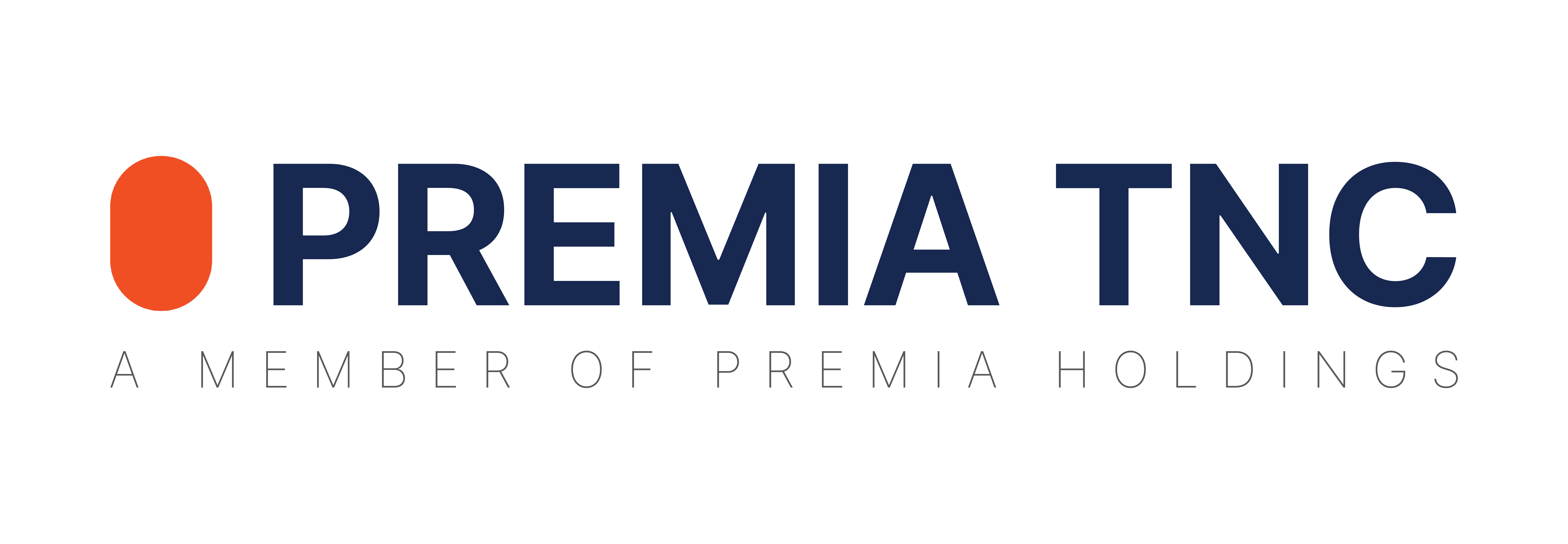



In the dynamic landscape of international business, understanding the intricacies of Value Added Tax (VAT) is crucial for Korean companies. This guide delves into the world of VAT and the VAT return procedure specific to Korean businesses.
1. Understanding VAT in South Korea
Definition and Overview of VAT
Value Added Tax (VAT) is a consumption tax applied to the value added to goods and services at various stages of production and distribution. In South Korea, VAT plays a pivotal role in revenue generation and economic stability.
VAT Rates and Categories
Korea employs different VAT rates and categories for diverse goods and services. Comprehending these nuances is essential for accurate tax reporting.
Applicability to Korean Companies
VAT laws in South Korea extend their reach to both domestic and foreign companies operating within the country. Korean businesses must navigate VAT regulations efficiently.
2. VAT Registration in South Korea
Mandatory vs. Voluntary Registration
Understanding when VAT registration is obligatory and the advantages of voluntary registration is essential for Korean businesses.
VAT Registration Process
Navigating the registration process, including required documentation and registration authorities, is the first step to VAT compliance.
Benefits of VAT Registration
Discover the benefits of VAT registration, including input tax recovery and legal compliance.
3. VAT Calculation and Invoicing
VAT Calculation Methodologies
South Korea employs different methods for VAT calculation, such as the standard and special VAT calculation methods. Each method has its unique characteristics.
VAT Invoices in South Korea
Explore the intricate requirements for VAT invoices in Korea and the various types of VAT invoices used in business transactions.
4. VAT Reporting and Records
VAT Reporting Periods
Korean companies must adhere to specific VAT reporting periods, with implications for filing frequency and compliance.
Filing VAT Returns
Learn about the options for filing VAT returns, whether electronically or manually, and the associated procedures.
Record-Keeping Requirements
Effective record-keeping is crucial for VAT compliance in South Korea. Understand the necessary documentation and best practices.
5. Input and Output VAT
Understanding Input VAT
Discover the eligibility criteria and process for reclaiming input VAT, a significant aspect of VAT management for Korean companies.
Output VAT
Unravel the intricacies of output VAT calculation and reporting for your business.
6. VAT Refunds in South Korea
Eligibility for VAT Refunds
Dive into the criteria for VAT refund eligibility in South Korea and the procedures involved.
Procedures for Claiming VAT Refunds
Gain insights into the step-by-step process for claiming VAT refunds and the associated timelines and considerations.
7. Compliance and Audits
VAT Compliance in South Korea
Compliance with VAT regulations is paramount. Learn the key aspects of staying VAT compliant in Korea.
VAT Audits and Inspections
Explore the triggers for VAT audits and what to expect during the audit process.
8. Common VAT Mistakes to Avoid
Common Errors in VAT Returns
Identify common errors in VAT returns and discover practical tips to prevent them.
9. Changes and Updates in South Korean VAT
Recent Amendments to VAT Laws
Stay informed about recent changes in South Korean VAT laws and their implications for Korean companies.
10. VAT and International Transactions
VAT on Imports and Exports
Understand how VAT impacts international trade, including imports and exports.
Cross-border VAT Considerations
Explore VAT considerations when dealing with international clients and cross-border transactions.
VAT on Services to Overseas Clients
Learn how VAT applies to services provided to clients abroad and the related regulations.
11. Advanced VAT Strategies
Advanced VAT Strategies
Discover advanced VAT planning and optimization strategies for Korean businesses.
VAT Recovery Services
Explore the benefits of VAT recovery services in optimizing your company’s VAT management.
12. VAT Software and Tools
Benefits of VAT Software
Understand the advantages of using VAT software for efficient VAT management.
Top VAT Software Options
Explore the top VAT software solutions tailored for Korean companies and their unique features. Learn about the essential features to consider when choosing the right VAT software for your business.
Conclusion
In conclusion, VAT management is a crucial aspect of operating a successful Korean company. By mastering the intricacies of VAT and adhering to the VAT return procedure, businesses can ensure compliance, financial efficiency, and long-term sustainability. Staying informed, embracing technology, and strategizing effectively can make VAT a seamless part of your business operations.
FAQ of VAT Return in Korea
Navigating the VAT return process in Korea can be complex, but having answers to common questions can make it more manageable. Here are frequently asked questions (FAQs) about VAT return in Korea:
1. What is VAT, and who needs to file VAT returns in Korea?
VAT, or Value Added Tax, is a consumption tax levied on the value added to goods and services. In Korea, businesses that exceed the VAT registration threshold must file VAT returns.
2. How often do I need to file VAT returns in Korea?
The frequency of VAT return filing in Korea depends on your business type and sales volume. It can vary from monthly to yearly.
3. What are the key documents required for VAT return filing?
You will typically need VAT invoices, sales invoices, purchase invoices, and other financial records to support your VAT return.
4. How can I register for VAT in Korea?
VAT registration can be done through the National Tax Service (NTS) in Korea. You'll need to provide necessary documentation and apply online or in person.
5. Can I voluntarily register for VAT in Korea, even if I don't meet the threshold?
Yes, voluntary registration for VAT is allowed in Korea. Some businesses choose to register voluntarily to benefit from input tax recovery.
6. What is input tax, and how can I recover it?
Input tax is the VAT you've paid on purchases and expenses related to your business. You can recover it by deducting it from the VAT you've collected (output tax) when filing your VAT return.
7. What are the VAT rates in Korea?
In Korea, there are different VAT rates, including the standard rate and reduced rates for certain goods and services. The standard rate is usually higher.
8. What are the penalties for late or incorrect VAT returns in Korea?
Penalties for late or incorrect VAT returns in Korea can include fines and interest charges. The severity of penalties may vary depending on the nature of the violation.
9. How do I submit my VAT return in Korea?
VAT returns can be submitted electronically through the National Tax Service's online portal, or they can be manually submitted at designated tax offices.
10. What is the deadline for filing VAT returns in Korea?
The deadline for VAT return filing in Korea varies depending on your business type and sales volume. It's crucial to be aware of your specific filing deadlines to avoid penalties.
11. Can I amend my VAT return if I made a mistake?
Yes, you can amend your VAT return if you discover errors or omissions. The process for amending a return typically involves filing a correction.
12. How long does it take to receive a VAT refund in Korea?
The timeline for receiving a VAT refund in Korea can vary but generally takes several weeks to process. Delays can occur due to factors like the complexity of the refund claim and the volume of refund requests.
13. What is the difference between standard VAT calculation and special VAT calculation in Korea?
Standard VAT calculation is the regular method used for calculating VAT on sales and purchases. Special VAT calculation methods may apply to specific industries or situations, providing alternative ways to calculate VAT.
14. Are there any recent changes or updates to VAT laws in Korea that I should be aware of?
Staying informed about recent amendments to VAT laws in Korea is essential for compliance. The tax authorities regularly update regulations, so it's crucial to keep up to date.
15. Can I get professional assistance with my VAT return in Korea?
Yes, many tax professionals and accounting firms in Korea specialize in assisting businesses with VAT return filing, ensuring accuracy and compliance.
16. How can I optimize my VAT management in Korea to minimize tax liabilities?
VAT planning and optimization strategies can help businesses reduce their VAT liabilities. Consulting with tax experts can be beneficial in this regard.
17. Are there VAT software solutions available to assist with VAT return preparation in Korea?
Yes, there are VAT software tools tailored for Korean businesses that can streamline the VAT return preparation process.
18. What are the common mistakes to avoid when filing VAT returns in Korea?
Common mistakes include incorrect calculations, missing documentation, and late filings. Awareness of these pitfalls can help you avoid costly errors.
19. How does VAT apply to international transactions involving Korean companies?
VAT rules can be complex in international trade. Understanding VAT implications on imports, exports, and services to overseas clients is crucial for Korean companies engaged in global business.
20. Where can I find more detailed information and resources on VAT return in Korea?
The National Tax Service (NTS) of Korea provides comprehensive guidance and resources related to VAT return procedures. Consulting tax professionals and utilizing authoritative sources can also be valuable.
Understanding the VAT return procedure in Korea is essential for businesses to comply with tax regulations and manage their finances efficiently. Staying informed and seeking professional guidance when needed can simplify the process and help your business thrive in the Korean market.






















